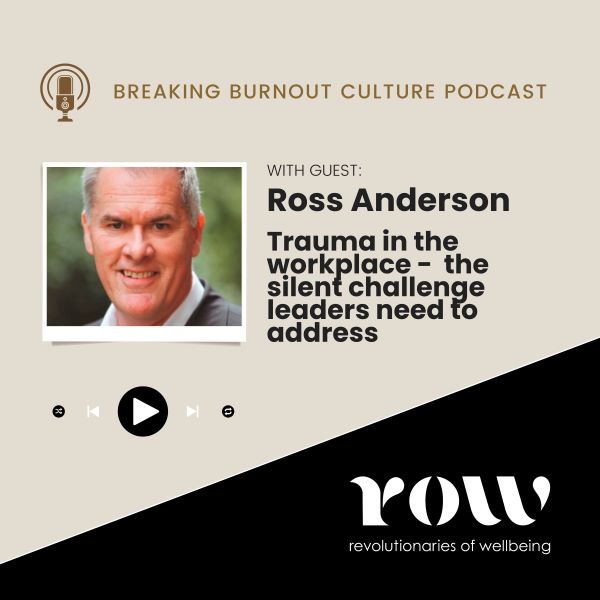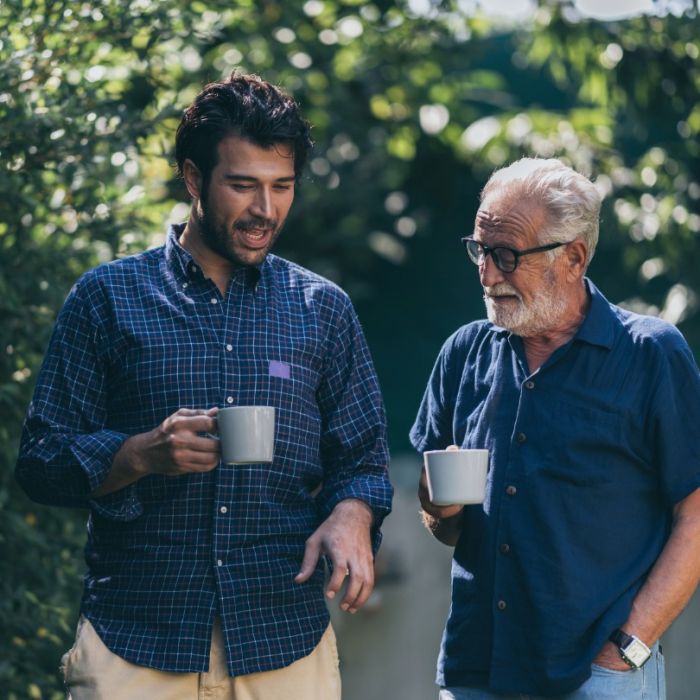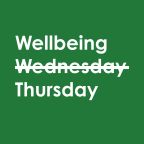In this episode, we’re exploring the profound impact trauma can have on people, teams, and organisations, and how workplaces can better respond and be more trauma-aware. We’ll unpack the difference between stress and trauma, and look at how events like the COVID-19 pandemic have reshaped our sense of wellbeing.
To better understand the effects of trauma, we’re joined by Ross Anderson, an Australian-based registered psychologist, executive coach, and leadership development expert. Ross has led complex change initiatives across sectors like Defence, Health, and Utilities, and formerly served as Director of MBS Mt Eliza executive education.
He brings extensive experience in trauma management, having served as Director of the National Trauma Clinic. Ross has been on the ground responding to critical incidents like the Queen St., Hoddle Street, and Port Arthur massacres, workplace injuries, and fatalities. His deep understanding offers invaluable insights into creating trauma-informed workplaces.
Here’s what you’ll take away from this episode:
- A better understanding of what trauma is and how it’s different from ongoing stress
- Key signs to look for in team members who may be experiencing trauma
- How different generations might respond to trauma
- The link between burnout and trauma—and why it’s important to recognize
- Practical steps for fostering a trauma-informed workplace
Whether you’re a leader, an HR professional, or simply looking to understand trauma in the workplace better, this episode provides valuable tools and insights to help you create a healthier, more supportive environment for your team, even during the toughest of times.
If anything in this episode feels a bit close to the bone, we encourage you to reach out to someone you trust or your national helpline.
“Normal people have bad things happen and you can recover. But recovery starts with awareness this is happening, and acceptance this is a normal response.”
Listen on your favourite platform
Discover the ROW Workplace Wellbeing Podcast on popular platforms such as Spotify, Apple, Amazon Music/Audible and iHeartRadio.
We value your feedback! Please consider leaving a review on your preferred podcast platform, such as Apple Podcasts or Spotify. Let us know what you enjoyed most about this episode.
Where to get help
If you find the content of this story upsetting or need support, it’s completely normal and a positive step to seek help. Taking this step can be daunting, but it’s important. Please visit the website HelpGuide for helplines in your country, or contact your workplace’s Employee Assistance Program (EAP).
Episode insights
Episode Summary
Key points
This episode covers:
• Defining trauma and its impact on workplaces
• Building trauma-informed workplaces
• Leadership’s role in addressing trauma
• Responding to traumatic events
• Generational differences in trauma response
• Myths and stigmas surrounding trauma
• Connection between burnout and trauma
• Compassion fatigue and self-care for carers
Detailed summary
1. Defining Trauma and Its Impact
Trauma is defined as an abnormal event that affects a person’s sense of physical or psychological safety. It differs from ongoing stress and can be triggered by various incidents, from large-scale events like earthquakes to localised occurrences. The COVID-19 pandemic is identified as a traumatic event due to its global impact and threat to physical and psychological safety. Ross Anderson notes that the overall general level of wellbeing has decreased, making people more vulnerable to trauma.
2. Symptoms and Responses to Trauma
Common symptoms of trauma include:
• Being easily startled or affected
• Short temper and derailing behaviours
• Rumination and sleep disturbances
• Forgetfulness and inappropriate responses
Individual responses to trauma can vary widely, influenced by factors such as:
• Generational differences
• Cultural background
• Personal experiences and resilience
3. Building Trauma-Informed Workplaces
A trauma-informed workplace is characterised by:
• Preparedness for potential traumatic events
• Having a plan and designated team for response
• General concern for employee wellbeing
• Regular wellbeing check-ins by leaders
• Access to psychological first aid resources
Organisations can build trauma-informed workplaces by:
• Using psychological assessments in leadership selection
• Including people skills in performance evaluations
• Encouraging regular team contact and input
• Fostering a collective support system
4. Leadership’s Role in Addressing Trauma
Leaders play a crucial role in creating psychologically safe workplaces. Key aspects include:
• Demonstrating kindness and caring
• Seeing employees as whole persons
• Conducting regular wellbeing check-ins
• Being mindful of people’s overall wellbeing
Anderson emphasises the importance of leaders having strong emotional intelligence and humanistic qualities. He suggests that organisations should reinforce the message that developing people is a key aspect of leadership.
5. Responding to Traumatic Events
When responding to trauma, it’s important to:
• Avoid re-traumatising individuals
• Refrain from trying to ‘fix’ the situation
• Offer presence and support without pressure
• Listen without interrogating
• Provide professional help when necessary
Anderson advises using phrases like “I don’t know how you’re feeling, but I’d like you to know I’m here for you” when supporting traumatised individuals.
6. Generational Differences and Trauma
The discussion highlights how different generations may perceive and respond to trauma differently:
• Older generations may be more accustomed to hardship
• Millennials and younger generations may have less experience with large-scale traumatic events prior to the pandemic
• Recent global events have challenged the worldview of younger generations who grew up in relatively stable times
7. Myths and Stigmas Surrounding Trauma
While improving, some persistent myths and stigmas include:
• The belief that emotions should be suppressed or ignored
• The idea that experiencing trauma indicates personal weakness
• The notion that alcohol or other substances can effectively manage trauma
Anderson notes a positive shift towards acknowledging emotions as a normal part of human experience.
8. Connection Between Burnout and Trauma
While burnout and trauma are distinct:
• High stress levels and burnout can make individuals more vulnerable to trauma
• Reducing overall stress can help build resilience against potential traumatic events
• Maintaining employee wellbeing is crucial for preventing extreme responses to trauma
Additional Notes:
• The discussion touched on various traumatic events, including the Christchurch earthquakes, Australian bushfires, and historical events like the Vietnam War
• Anderson shared personal experiences from his work with emergency responders and victims of various traumatic events
• The importance of community and collective safety as antidotes to trauma was emphasised
• The conversation highlighted the need for a more humanising approach to leadership and trauma response in workplaces
APPLYING THIS TO THE WORKPLACE
If you’re thinking about how to apply this to your workplace, here are some things to consider.
The business case:
• Trauma-informed workplaces provide better support and stability for staff.
• Organisations are more prepared for crises with a plan and trained team.
• Prioritising wellbeing check-ins improves team performance and sense of belonging.
• Trauma-informed practices prevent harmful interventions and re-traumatisation.
Potential challenges to address:
• Many workplaces still lack proper trauma response protocols
• Some leaders lack experience in dealing with large-scale traumatic events
• Ongoing stigma around acknowledging and addressing trauma in the workplace
• Increasing frequency and intensity of traumatic global events
• Risk of employee burnout due to chronic stress and trauma exposure
• Potential for re-traumatisation if trauma responses are handled poorly
• Compassion fatigue among leaders and support staff
• Balancing empathy with maintaining personal boundaries
Top tips for listeners:
• Implement regular wellbeing check-ins for employees
• Train leaders in psychological first aid and trauma response
• Develop comprehensive trauma response plans for organisations
• Foster a culture of collective support and community in the workplace
• Create a supportive network for wellbeing professionals to prevent burnout
TRANSCRIPT
00:03
Sarah McGuinness: I have a question for you. How well does your workplace respond to trauma? It’s an important topic and one that can often be there, simmering away.
Whether after a large scale event like an earthquake, or the ongoing impact of Covid-19, or even localised events that are no less devastating, trauma can affect your team’s wellbeing and performance in ways that might not be immediately visible, but can have a significant and long lasting impact.
Hi, I’m Sarah McGuinness, founder of Revolutionaries of Wellbeing, and I’m on a mission to break burnout culture – for good. I’m backed by an incredible community of HR and health and safety professionals, people leaders and wellbeing champions who are all driving real change.
Today, we’re diving into how workplaces can better support their people in the face of trauma.
, 00:55
Ross Anderson: I mean, there’s. The stuff that people go through is bad things happen to bad people. If it happened to me, I must mean I’m bad. And getting past that saying, well, normal people have bad things happen and you can recover.
But recovery starts with awareness that this is happening and acceptance this is a normal response.
, 01:18
Sarah McGuinness: In this episode, I’m joined by Ross Anderson, a psychologist and trauma management expert who has been navigating significant crises in Australia for decades.
He’ll be sharing practical insights on building trauma informed workplaces and the steps that you can take to support your team effectively. Let’s dive in.
, 01:37
Ross Anderson: The pandemic hasn’t helped. I mean, there’s always been events. So in Melbourne, there’s been massacres. We’ve had three of those. There’s been disasters. People get killed daily in horrible ways.
And as a society, we tend to grieve, but it’s. It doesn’t affect us. So eventually we can say, well, yeah, I’m okay, and get on with it. But things like the pandemic has affected all of us.
So I think the overall general level of wellbeing has decreased. People are much more vulnerable because they’re frightened, because they’ve been traumatised.
They can’t quite make sense of what it includes. Me, of course, as a Melbourne person, can’t quite get their heads around. Is it over? Can I start recovering now? So I think that there’s a sense of apprehension and anticipation that things aren’t quite right yet.
And we were talking before about the protests around the Hamas Israel crisis. At the moment, people are reacting much more vividly and passionately, I think, because the general threshold of tolerance is not that great. So more things upset us more profoundly.
So I think general wellbeing is not good. There’s still a lot of people who are isolated from their workplace, they’re working from home.
An antidote to trauma is community is a sense of belonging, a sense of collective safety. And if you’re at home staring through a screen, there’s this disconnection.
So it’s up to you to try and make sense in your own head, rather than the collective response which is critical to recovery from trauma. So I think wellbeing is really fragile and hence, yeah, thank goodness for people like you and your organisation, because we need to do this stuff.
We need to acknowledge, look, I think.
, 03:23
Sarah McGuinness: It’s certainly a community effort in terms of caring for others, just with such high levels of distress out there, and I know that’s what you’re seeing, too.
It’s probably useful for our audience to understand what. What is trauma in terms of a definition and what’s the difference with distress? I mean, is there a continuum between the two?
, 03:47
Ross Anderson: They are different and it’s very vague. So trauma is usually an event which is abnormal, which affects a person’s sense of physical or psychological safety.
So it has to be an event as opposed to an ongoing pressure. So something happens, it’s abnormal and it overwhelms or at least threatens the person’s physical and psychological safety.
So, yeah, things like, if we look at emergency responders, so they deal with horrible things, but it’s not abnormal. And my experience as a first responder was if I knew if I went into an event, I knew what to do, I feel like it’d be useful. I didn’t become traumatised, but I think I might have mentioned to you when we spoke that, apart from when it becomes personal, I saw a fireman where, in a car crash, the child who died at the back seat looked exactly like his daughter.
So all of a sudden, all the objectivity shield that you can use is taken away. And now you’re a human experiencing this event. So it’s an event. It impacts the person’s sense of physical or psychological safety. From a massacre to an assault to a near miss.
We used to do a lot of work with the tram drivers in Melbourne who had near misses because cars would cut across them. Of course, they can’t swerve, they can’t stop quickly.
And that was enough because you then go through this whole process of what could have happened, what if, et cetera.
, 05:20
Sarah McGuinness: Gosh, that must be just so incredibly difficult. Let’s just unpack that for a moment. Is an event like the pandemic, a trauma would that fit the definition?
, 05:31
Ross Anderson: Yes, indeed, because it’s an external event, unexperienced before it is abnormal, which threatened our physical and psychological safety because people died, because we had these incredible restrictions.
It was, again, it was one of the greatest societal problems.
, 05:51
Sarah McGuinness: So following on from that, is there a difference between acute trauma and chronic trauma?
Because I’m thinking with the pandemic, you know, it’s been years now and people are still experiencing the hangover of that, aren’t they, in their personal lives and at work?
, 06:11
Ross Anderson: Well, because it hasn’t gone away. So it’s still, in some ways it’s acute because it’s every day it’s there.
The chronic is once the event has passed, but I’m still stuck with ruminating about it. Obsessive thoughts startle response to the outside world, so it’s..My system is in a hyper aroused state and hence I’m reacting again and again and again to things which might have been quite normal before this thing happened. And chronic can be years.
, 06:44
Sarah McGuinness: I mean, we’re certianly living in a world where there are more and more traumatic events and whether we’re just more hyper aware of them because we’re so connected via the Internet, or whether it really is, you know, a post Covid world where there are just more events happening.
And so I guess what I’m seeing is organisations want to be more trauma informed, but there’s still a real reticence or discomfort from people in wanting to work through trauma in the workplace or know how to do it appropriately.
And is that what you’re seeing?
, 07:15
Ross Anderson: Very much so. I mean, it’s something you need to outsource quickly to professionals to come and do stuff.
And I think there’s a topic we were talking about, about the role of leaders. I mean, we need to have mentally healthy, safe, safe workplaces. So there is the capacity to deal with this as a normal thing.
The psychological health is a normal part of being a human, not just that. We are sort of robotics who don’t have feelings.
And I love when Jacinda Ardern resigned when she was asked about leadership, and she said, the key thing is kindness. So the work that I do in leadership is about kindness and is about caring.
It’s seeing the whole person and being mindful of people’s wellbeing. So the trauma is something that we can respond to as an organisation or as a team, not just something we isolate the victims and send them off to get some sort of healing externally.
, 08:12
Sarah McGuinness: So it sounds to me like a preventative approach is really powerful. And it makes a really profound difference when we give leaders those skills to be able to respond to traumatic events.
Of course, the other side of it too, is then giving leaders the capacity to be able to respond. Because, you know, when you have nothing left in the tank, then it’s really hard to be able to use those skills that you’ve had learn. Right.
, 08:38
Ross Anderson: Leaders need to be having irregular wellbeing check-ins. The conversation is not just about the task, it’s about the person, how you doing, what’s happening, what’s going on that we actually care about? The Katzenbach and Smith team model.
The high performing teams actually care about each other. So the more we can get as a leader, you’re charged with the wellbeing of your people is one of your key responsibilities. I think the better it’ll be.
And having people who know psychological first aid and having access to the resources you might need in the event that something happens.
, 09:14
Sarah McGuinness: If someone was having a strong response to a traumatic event, what might be some of the symptoms that you would be looking out for?
, 09:24
Ross Anderson: The classic ones are easily startled, hypervigilant, tired. The things that you will see are easily startled, easily affected, short fuse.
Some derailing behaviours come out. What you won’t see is that the person’s ruminating about this all the time. They’re not sleeping well because they’re having nightmares, they’re reliving.
For some people, it’s a bit like there’s a record in their brain and the play button keeps being pushed and all of a sudden they’re back there again.
And that can be a smell or a taste or anything. So watch out for people a little bit more fragile, who are more forgetful, who are responding a little bit inappropriately.
And rather than just wiping it off as you’re being rude or you’re bad mannered or whatever, get a sense of what’s going on.
, 10:25
Sarah McGuinness: Can I test a word with you? You know, after the Christchurch earthquakes, there was a lot of focus on, you know, encouraging people to be resilient.
And I think it got to the point where people were like, if you ask me to be resilient one more time, I will run you out of town. So what’s your view on that word, resilience?
, 10:42
Ross Anderson: I think resilience is important, but you are allowed to have feelings, because resilience doesn’t mean I’m now immune to any emotion, it just means I know how to bounce back.
So resilience, the analogies to be, to be, not to be hard, like glass, but to be like a bunch of a piece of leather, you can absorb it and you can bounce back. So don’t be too resilient, but just know how to come back afterwards.
, 11:10
Sarah McGuinness: I imagine there must be individual differences for how people respond to trauma.
You know, what are some of the generational differences? You see some of the cultural differences or any of those other factors that can impact our perceptions of the world and how we respond to things?
, 11:28
Ross Anderson: And that’s a really good point. People do respond differently with, again, the Queen Street massacre, which is eight people shot dead in an office in the centre of Melbourne.
I saw people from one end who said, isn’t that horrible? But bad stuff happens full stop to some, and this was now 20 years ago. Some have never worked since because it so profoundly changed their view of the world. The world is a threatening place.
The world is a dangerous place. The world is an overwhelming place.
So there’s this whole, whole spectrum. It’s interesting, isn’t it? We can go… I worked with, recently with someone who was an older person who was a trauma, not a trauma survivor, who was a survivor of the Holocaust.
And yet when you’re born into an environment where life is incredibly fragile, it does shape the whole way you view existence.
And for us, in our generation, we sort of. The Vietnam war was over, life seemed pretty good, and then a pandemic came along and then other stuff came along. So to try and incorporate these realities into our view is tricky.
So I think there is a generation, the older generation is sort of used to stuff the younger generation wasn’t. And I think it’s had a more profound effect.
, 12:52
Sarah McGuinness: That’s so interesting. I’m reflecting on my age. I’m a millennial. Sorry. I always find myself saying, sorry, I’m a millennial.
But our generation, generally, in the eighties and nineties, probably up until 9/11, hadn’t really experienced anything hugely traumatic in terms of global events.
I mean, I recognise, on an individual level, people, I’m sure, or know went through some stuff on their own, but in terms of societal issues, there probably wasn’t that much around, or we were shielded from it.
And then more recently, yes, there were localised events like the bushfires or the Christchurch earthquake, but it wasn’t really till the pandemic that we had something so.
, 13:36
Ross Anderson: Global, it affected all of us. You couldn’t escape it. That’s right.
Me being a boomer, my thing started in the seventies where I was possibly going to be sent to Vietnam in a war I didn’t believe in.
And the alternative was if you didn’t say he didn’t go, you went to jail for two years. That was the choice that we had.
So that whole Vietnam war that we didn’t believe in that, that already was there for every person of my age.
Luckily, I was a medical student, so I had was exempt. But otherwise friends of mine went and some didn’t come back. But yes, if you’re a millennial, thank goodness. I mean, it’s been pretty nice running.
, 14:14
Sarah McGuinness: For a while, which is probably why we have some sort of nostalgia of life going. Life was really easy at some point. Why is life not easy now?
I mean, under that I’m reflecting, and this is a broad generalisation, but many of today’s leaders would be millennials and some boomers too.
But generally, if millennials are the ones in leadership roles or in the frontline leader roles coming through, then generally we haven’t had experience with these big levels of trauma prior to the pandemic. So I imagine as a group, we’re all trying to figure it out.
, 14:53
Ross Anderson: What’s interesting is because some of the leaders, including Jacinda, Ardern and other much, much younger people who haven’t had that lived experience, but somehow recognise that it’s about becoming more human is the way to get through this than the more old stoical stuff of, yeah, yeah, stiff upper lip and whatever. I think it’s a more humanising transition.
, 15:17
Sarah McGuinness: Are there still myths and stigmas around trauma, and have they changed over time?
, 15:24
Ross Anderson: It’s improving a bit, but it used to be, we don’t have emotions, we don’t acknowledge them. I think I told you the story of a fireman I worked with who debriefed his team and that had an event.
And he went back to the station and asked the station manager site visit. Senior fireman, I hear you were debriefing your team, said, yeah.
And he said, why don’t you go to my office, pour yourself a glass of harden up and go back to work? Which was the old style way of coping.
You just don’t ignore, you stuff the feelings down with alcohol, with drugs, with food, with whatever. I think we get much more aware that emotions are part of who we are.
We need to acknowledge and work with them. So I think we’re getting better at it. It’s taken time. Denial is still a much more prevalent sort of way of responding.
, 16:18
Sarah McGuinness: Let’s switch gears slightly and look at some of the issues in workplaces that may cause high levels of stress.
So if we take something like workload, for example, and if you’ve got workload that is so demanding and it’s so outside our personal resources to cope, could that be a trauma or is it stress?
, 16:39
Ross Anderson: That’s stress. But being stressed, unfortunately, makes you much more vulnerable if trauma happens.
So you need to lower the overall stress, make people more resilient so that when stuff does happen, they’ve got more resources to draw on.
But if you’re running very, very lean and you’re just below burnout, it’s very easy to be flipped across and panic attacks come in and all sorts of other stuff start to happen.
So, yes, workload, employee wellbeing, checking with people. Yeah. Obviously everyone’s individual. Get a sense of how each individual in your team is going. Lessens the likelihood of an extreme response to trauma.
, 17:26
Sarah McGuinness: That’s really interesting and that’s a really good pickup. So what’s the connection between burnout and trauma?
, 17:33
Ross Anderson: Burnout is just an accumulation of exhaustion over time. Burnout. Trauma is really. It hits you in the face, it’s now, it’s impactful and it takes a while to adjust to it, as opposed to this is BAU [business as usual] and I work 14 hours, days, I don’t sleep and blah, blah, blah, blah. It’s this one off thing.
, 18:01
Sarah McGuinness: Let’s talk about trauma informed workplaces. How would you define one? What would a good trauma informed workplace look like?
, 18:11
Ross Anderson: Well, basically everything. From there, we know what to do if something happens. So we do have drills if it’s going to be a physical thing.
We have sirens and we have whoop whoops, we have emergency things and whatever, but it’s also being close enough to deal with things that might impact us psychologically. But without trying to guess what can go wrong.
The Queen street massacre in Melbourne was a building society on the fifth floor of a building in Queen Street. I don’t know how you prepare for a guy with a machete which is what happened. Yeah. Eight people were killed.
So it’s assessing the risk. What is the risk? Having a plan in place, having a committee of people who know what to do when things happen, and then a general concern for people’s wellbeing, I think, positions an organisation fairly well.
, 19:06
Sarah McGuinness: And let’s talk about the immediate response to trauma. I mean, we’ve had a couple of organisations that we’ve worked with who have had to deal with things, you know, overnight that they couldn’t have foreseen.
If I, you know, actually, if I take one from a few years back now, you know, the Christchurch earthquake is probably a really good example. You know, we couldn’t have foreseen it.
And it didn’t only impact people at work, it was impacting them across their home lives as well. You know, it was global in the sense that the impact of the earthquake crossed all wellbeing domains.
So how do we respond to trauma? You know, certainly things like that that we just. We could not anticipate.
, 19:46
Ross Anderson: Well, it’s interesting because we. In trauma there’s this primary, secondary and tertiary victim.
So the primary victims are the ones who are actually there and it happened to them the second. So they’re a special class, so they get emergency instant response. The secondary victims were those who witnessed it, or it could have been then.
And I remember one armed robbery where a staff member was on holidays and she wasn’t there in the day of the robbery and she was more traumatised because she felt like, I should have been there, I should have done something.
It possibly it’s my fault or this sort of stuff. So they’re the secondary, but the tertiary victims are the families. The people connected. They weren’t there. They didn’t see it, they didn’t experience it, but it impacts people they know.
I was involved in a book with Dame Jane Goodall. Remember Jane Goodall, trauma and public memory. And there’s the Quaternary victim, which is us, the community. So it happened in our area in Christchurch, which is in New Zealand, which is in the south Pacific, etcetera.
But each of those require acknowledgments that this has been. Had an impact, but not the immediate response that the primary victims need. But we’re all affected. We’re all affected by this stuff.
, 21:08
Sarah McGuinness: That message that we are all affected is such a powerful one. And I can recall you and I were talking about this a couple of weeks ago that we were both in Melbourne at the same time.
In fact, we were working together on leadership development at the state government organisation that I was at.
And this was around the time of the bushfires. And as part of, you know, the state government’s response, they were involved in the immediate aftermath and then the rebuilding efforts and especially in the, you know, kind of immediate days after the bushfires. I can recall staff coming back and, you know, sharing their stories of what they had seen.
Now, I was in a leadership development role, so not an immediate supporter by any stretch, but I was in the. The people and capability teams. And so you’re exposed in some ways to what’s happening.
It was just so incredibly sad. And I had to, you know, try and find some ways to put boundaries around it, because I remember sitting in my car just thinking, you know, these, the grief could consume me and this grief doesn’t belong to me.
Once I had to keep saying to myself, and of course the other side of that is. But if I do, if this grief is impacting me to such a huge degree, which would be, I imagine, a normal response, how do I ask for help? Is it okay that I ask for help? Because I know I wasn’t in the bushfires, I wasn’t right there at the time.
, 22:42
Ross Anderson: Absolutely. And it really is getting past that stigma is that this is a normal thing. People who get traumatised, it’s a normal response, it’s not a clinical response.
I mean, there’s… the stuff that people go through is bad things happen to bad people. If it happened to me, I must mean I’m bad.
And getting past that to, well, normal people have bad things happen and you can recover, but recovery starts with awareness this is happening and acceptance, this is a normal response and then getting appropriate help.
But it’s normal to feel compassion, it’s normal to feel empathy and it’s normal to be distressed for other people. But then gently we remind ourselves it’s not us. We step back a bit and we keep moving forward.
It’s trying to act like this is bad things happen and who cares? Is just ridiculous.
, 23:38
Sarah McGuinness: So digging into that a bit deeper, is there a difference between healthy and unhealthy compassion? Because I could see that could be an easy trap to fall into.
, 23:49
Ross Anderson: And we talked about the expression compassion fatigue too. I mean, and there’s got to be, there’s something about if you’re in this area and you’re being exposed to challenging stuff to find, to know where your boundaries are.
I mean, you can’t empty yourself out each day and expect to be okay. So it’s. How do I. I’m present, I understand I can come around to your perspective and see what it’s like, but I come back to my perspective, which is just a little bit more objective because otherwise we can overwhelm ourselves.
Absolutely. So it’s okay to care, but don’t care too much because you put yourself at risk of being ill as well.
, 24:33
Sarah McGuinness: That leads really nicely into asking what organisations can do. So what would be some of your go-tos or your ideas for organisations in terms of building that trauma informed workplace place approach, especially with leaders?
, 24:48
Ross Anderson: Well, it’s really, it’s a really good question. I mean, a lot of organisations are now using psychological assessments to make sure that the people in leadership do have good EQ do have a sort of a humanistic quality to them and then say, this is the things we judge you on.
So in terms of your KPI’s or whatever, part of it is how well you lead and grow people.
So there’s constant reinforcement of a message that this is about people, people are important, develop people skills, get close to your team, have regular team contact and team input.
In that way, if something happens, the collective is already there to get around it, as opposed to we’re a disparate bunch of individuals who don’t really know each other very well and of course they perform better.
, 25:47
Sarah McGuinness: And then of course there’s how we can make sure organisations don’t re traumatise people and how do they not make it worse?
, 25:56
Ross Anderson: Yes, if you don’t know what to do, don’t go there. I mean, how you debrief people who have been traumatised is really a pretty complicated process.
So don’t try and do it. It’s really one of the best things to say is I don’t know how you’re feeling, but I’d like you to know I’m here for you. I’m not going to try and understand, I’m not going to try and fix it.
And it’s just that I’m here, tell me what to do. And some people say, just leave me alone. Others will say, well, I’d like to talk to you occasionally. And the psychological first aid isn’t to actually heal it, it’s just to prevent further damage.
So don’t go there, don’t try and dissect the problem or even to understand it, just say, I don’t understand, but I’m here for you. And if you want to talk to me, just talk.
And then that’s the old one of just listen, don’t actually try and interrogate, just listen, just be present.
, 26:49
Sarah McGuinness: Gosh, it can be really difficult too, can’t it? I mean, the natural human response, I think, is to want to try and fix things and make it better.
In some of the work that we do, we use Treasure and co’s model where they talk about different styles of caring and that being the kangaroo is when you over accommodate or you over empathise and you can lose your own boundaries in the process, which is often actually not appropriate to over accommodate with people and actually doesn’t help people either, does it?
, 27:20
Ross Anderson: And remember one event where there was a number of assaults and one of the professional helpers was going around hugging people and finally someone said, don’t do it.
My space has already been invaded. Now you’re invading me again. So just stay back, stay aware and stay concerned, but don’t try and fix it.
But if there’s obvious signs, you get some medical help, get some professional help. And again, to make it not a stigma, we give you some time off to go and get these things done, as opposed to it’ll be your annual leave, or it’ll be leave without pay.
That’s just ridiculous.
, 28:06
Sarah McGuinness: And finally, it’s important to look after the carers too, isn’t it?
, 28:10
Ross Anderson: Gee whiz. Carers get very unwell because eventually they get traumatised and they get compassion fatigue and they get overloaded and exhausted.
It’s very unhealthy to be a carer. So try to be part of a team that’s caring, not all on your own. That might sound a bit hard. Harder. But if you’re a wellbeing professional, make sure you’re part of a network.
Something like this is so important because it’s exhausted by yourself.
, 28:36
Sarah McGuinness: Thanks again for listening today.
It’s been great to have you along. If you’re keen to join the revolutionaries of wellbeing, head to row wellbeing. That’s r.o.w. wellbeing. And follow the links to sign up if you’re in our community. Thanks again, and we look forward to catching up with you really soon.
